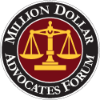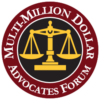Whistleblowers Fighting Medicaid & Medicare Fraud
When fraudsters target Medicare and Medicaid, it puts tens of millions of Americans at risk.
When fraudsters target Medicare and Medicaid, it puts tens of millions of Americans at risk.
Medicare, Medicaid, and other federally funded health insurance programs lose several billion dollars a year to fraud and improper billing by unscrupulous healthcare providers. Whistleblowers in the healthcare industry help the federal government recover these losses to maintain the programs’ fiscal health – approximately $1.8 billion in fiscal 2019‒20.
Properly handled whistleblower lawsuits play a critical role in upholding the integrity of Medicare and Medicaid, which are crucial safety nets for tens of millions of Americans.
Medicare and Medicaid are insurance programs. Like insurance companies in the private sector, they can be defrauded. As with the classic example of a homeowner who defrauds his insurer by burning down his crumbling old house, federal law allows criminal punishment of and monetary recovery from a contractor that defrauds the Medicare and Medicaid insurance programs.
The federal False Claims Act (“FCA”) allows the U.S. government monetary recovery and fines for improper claims for payment by healthcare providers that participate in the Medicare and Medicaid programs. Additionally, the North Carolina False Claims Act allows the state monetary recovery from healthcare providers that defraud its Medicaid program.
These laws cover a wide range of improper claims on, billing to, invoicing of, and receipt of government funds, including claims that do not meet the legal definition of “fraud.” Of course, a physician practice violates the FCA if it submits Medicaid claims for treatment that was not actually provided or a claim for treatment that carries a higher reimbursement rate than the treatment that was actually provided. A healthcare provider can also violate the FCA by failing to refund amounts that it receives from a state Medicaid program through innocent invoicing mistakes if it later learns that its invoices were improper.
Trickier situations arise when a contractor provides the government goods or services under a contract that requires compliance with certain federal or state statutes. A drugmaker or healthcare provider can violate the FCA by leading a government agency to believe that it has complied with laws relevant to Medicare or Medicaid funds, even if it does not explicitly claim that it has complied.
In one of our cases, a lawsuit was brought against a major drug store chain’s pharmacy in what became one of the first False Claims Act settlements involving Medicare’s Prescription Drug Program, known as Part D. The company agreed to pay the government to resolve allegations that it made false submissions to the Centers for Medicare & Medicaid Services (CMS).
The lawsuit alleged that the pharmacy misrepresented the cost of prescription drugs on the CMS online tool called the Medicare Prescription Drug Plan Finder (Plan Finder). Seniors use the Plan Finder to compare pricing and benefits of various Medicare Part D plans.
The whistleblowers, upon reviewing their Explanation of Benefits (EOB) statement, noticed a significant discrepancy in prescription drug pricing. Their EOB showed that the pharmacy charged more for prescriptions than what they found listed on the Medicare Plan Finder tool.
The higher prices that the whistleblowers had paid depleted their Medicare benefits prematurely, forcing them to pay more money out of pocket.
They brought a successful whistleblower claim under the False Claims Act and shared a percentage of the government’s rewards.1, 4
In South Carolina, a hospital paid $17 million to settle its alleged violations of the False Claims Act.3 The hospital allegedly had improper financial arrangements with no fewer than 28 physicians. The physician who blew the whistle on the hospital received a reward of $4.5 million.1
In one of our cases, an employee of a medical clinic in North Carolina brought a qui tam claim against the clinic alleging that, for several years, it submitted false claims against the government through improper and fraudulent billing. Allegations were that defendants submitted false and/or fraudulent claims to Medicare, Medicaid, and TRICARE by unbundling, billing for medically unnecessary services, and billing for services requiring direct physician supervision when, in fact, there was none. In 2015, a settlement agreement was reached between the clinic, the state of North Carolina, and the federal government.4
In another of our cases, an employee of a healthcare company filed a federal False Claims Act suit alleging company owners knowingly defrauded the United States and the State of North Carolina for several years, by engaging in numerous fraudulent billing practices, including knowingly falsifying documents when billing Medicare, Medicaid, TRICARE, and the Veteran’s Administration. Specific allegations included:
The employee estimated that fraudulent billing over this period amounted to a total of nearly $100 million.4
Each state administers its own Medicaid program for low-income residents and has some latitude in determining eligibility and negotiating reimbursement rates with healthcare providers. However, because these programs receive federal funds, they have to comply with federal law. One federal requirement on states is that they fight fraud and other billing abuses by healthcare providers.
They do this through Medicaid Fraud Control Units (MFCU). Federal law requires each MFCU to be controlled by or work with the state’s attorney general. It must be independent from the state’s Medicaid agency.
One such MFCU is the North Carolina Department of Justice’s Medicaid Investigations Division (MID), which includes attorneys and State Bureau of Investigations special agents. The MID is responsible for investigating healthcare providers for submitting fraudulent or inflated requests to the North Carolina Division of Health Benefits, the state’s Medicaid agency. Some of these investigations begin with tips from people working in the industry. Others come from audits. If you are a potential tipster, you and an experienced healthcare fraud attorney may decide to confer with the MID before filing a lawsuit under the North Carolina False Claims Act (NCFCA). With or without such pre-suit consultation, the NCFCA requires a lawsuit to be filed under seal and then served on the Attorney General so that the MID can investigate.
In South Carolina, the Medicaid Fraud Control Unit is administered by the Office of the Inspector General. The unit targets fraud in the state’s health care industry by investigating and prosecuting hospitals, nursing homes, laboratories, and other Medicaid providers for false claims. Medicaid fraud is punishable by both criminal penalties and civil liability.
An attorney can help you file an FCA lawsuit on the government’s behalf. In one case, three whistleblowers and their attorneys sued a medical-device company on behalf of the United States and numerous states. The three whistleblowers were employees of the company which provided components for knee replacements. They discovered that the company was concealing failures of the knee components when it made claims for reimbursement to Medicare, state Medicaid programs, and the Veterans Administration.3
You may have discovered fraudulent Medicaid or Medicare billing at your job and have no idea what to do. You may have even already reported it to the company and been ignored!
Should you quit? Maybe you can’t just leave because you need to make a living. And who’s to stop the fraud from continuing if you go? Or maybe you’ve already been fired for blowing the whistle internally.
Whatever your situation, do right by the taxpayer and right by yourself. You are protected by certain laws and you should seek the help of an experienced attorney. Call us right now at 1-888-292-8852 for a free, confidential case evaluation.
You may be entitled to up to 30% of any recovery in a lawsuit against your fraudulent employer. And these settlements can be significant.
An experienced Medicare/Medicaid fraud attorney can help you take the right steps regarding further investigation and appropriate notice to the relevant government agency. How you proceed could determine whether you have a viable FCA case as the “original source” of the relevant information. It can also determine whether you are entitled to a share of the government’s potential recovery from the lawsuit. Finally, your attorney can help you understand applicable FCA anti-retaliation provisions as well as state and federal laws that limit the legal liability of a whistleblower who was involved in an employer’s false claims for payment.
A whistleblower lawsuit must be filed “under seal.” That is, it does not immediately become public. Federal and/or state attorneys investigate the allegations. The defendant is not notified or required to respond during this time.
The whistleblower must also avoid allowing the information to leak out before the court lifts the seal. At the conclusion of a successful case, a court may reduce the whistleblower’s share of the recovery if he or she failed to keep an appropriate degree of secrecy in the early stages of the case. For flagrant and harmful violations of the seal requirement, the court may grant the government’s request to have the whistleblower dismissed from the case.
Fraud on federal health insurance programs such as Medicare, Medicaid, and TRICARE costs these programs billions of dollars each year. Whistleblowers in the industry, including doctors, nurses, and contractors initiate most of the qui tam lawsuits that expose this fraud.
If you suspect fraud against the government, give us a call. We are here to help you with your whistleblower/qui tam claim. Our attorneys have decades of combined experience between them, and we are led by former White House-appointed attorney Bill Nettles, who recovered billions of dollars in fraud against the government during his term.1
We appreciate the struggle you may be facing. That is why we have a You-First Policy.
We will use the full power of the law to try to protect you from employer retaliation. Let’s talk, even if you were caught up in your employer’s fraud. And if we decide to take your case and you don’t get a reward for reporting fraud, you owe us nothing.2 Contact us online or call 1-888-292-8852.






If you’re wondering if it’s a good idea to speak with a whistleblower lawyer about what you know, let us set the record straight.
"*" indicates required fields